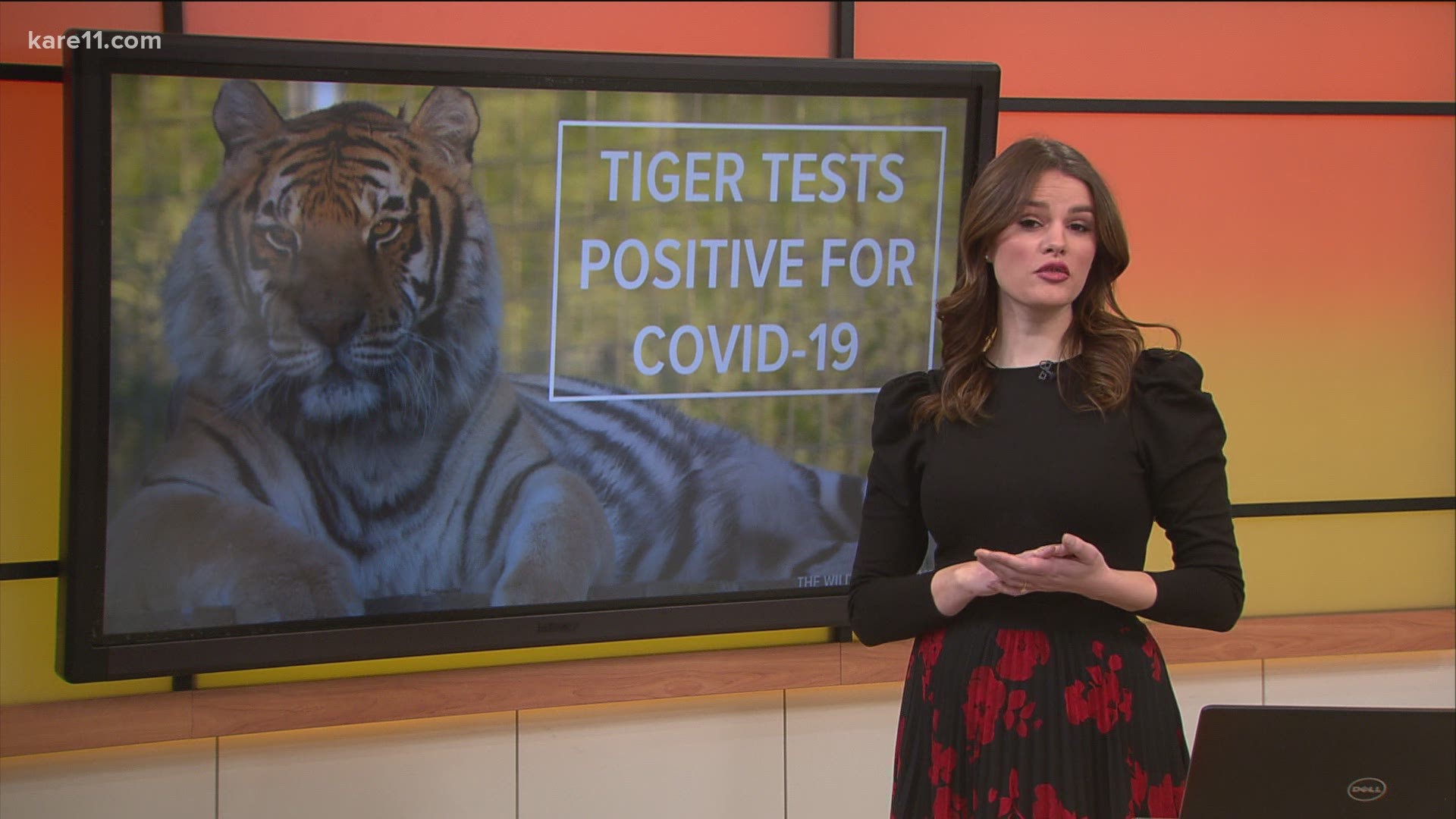PINE COUNTY, Minn. — Minnesota animal health officials have confirmed that a tiger living at an animal sanctuary in central Minnesota has tested positive for COVID-19.
The Minnesota Board of Animal Health says the Pine County big cat who contracted SARS-CoV-2, the virus that causes COVID-19, is Sabrina, a 21-year-old female Sumatran/Bengal Tiger that lives at the Wildcat Sanctuary.
Staff at the Sanctuary first started noticing lions, tigers and cougars showing symptoms in early January, and the staff veterinarian consulted with state animal health officials about testing at a private lab.
"Some of our tigers, lions and cougars had showed mild symptoms," explained Wildcat Sanctuary founder and director Tammy Thies. "They are all bright, alert and responsive under close veterinary care and all have recovered. No new cats have shown symptoms."
Due to her advanced age and higher-risk status, Sabrina was sedated and samples were taken and submitted to a private lab. The positive results were then confirmed by federal officials.
It is not clear if any of the other cats showing symptoms actually had the virus.
“This marks only the second confirmed captive or domestic animal case of SARS-CoV-2 in the state,” said State Veterinarian, Dr. Beth Thompson. “It’s a good reminder that the virus can be transmitted from people to animals. We appreciate the veterinarians in the state who contact our office to discuss testing and surveillance of exposed and symptomatic animals so we can investigate with our state and federal partners.”
The only other animal in Minnesota with a confirmed positive test for COVID-19 is a Carver County house cat, who was diagnosed in June of 2020.
Researchers say there is evidence that humans can pass the virus on to animals, but there is not yet any indication that animals can pass COVID-19 to humans.
State officials say Wildcat Sanctuary staff are working to maintain strict COVID-19 protocols, wearing face masks, sanitizing hands and maintaining physical distance since the onset of the pandemic early last year. The facility is not open to the public.
"We hope what we’ve learned about this virus will add valuable knowledge to the global understanding of how it affects big cats, and the information will help other facilities recognize these symptoms in their cats and provide supportive care," Thies reflected.
You can find out more about COVID-19's impact on animals on the Centers for Disease Control and Prevention website.

